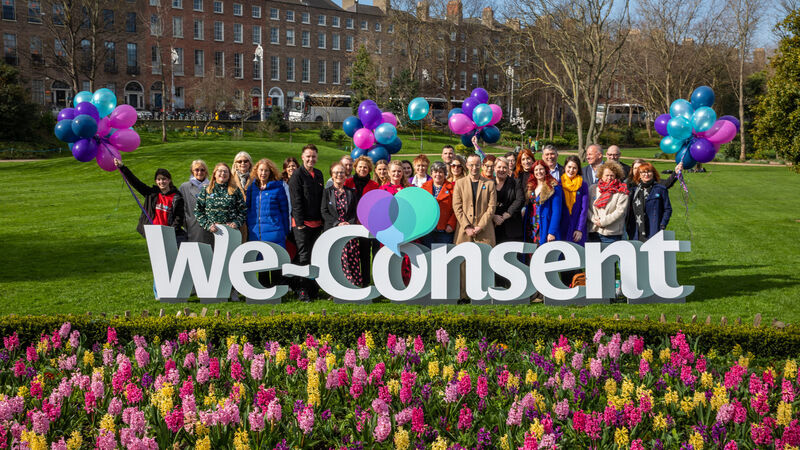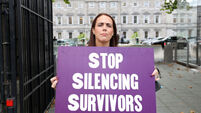Study finds 'concerning' attitudes to consent among younger men

Noeline Blackwellof the Dublin Rape Crisis Centre (DRCC) with panellists Chris Rooke, Caroline Kelleher, Royal College of Surgeons in Ireland, Louise McSharry, comedian Jarlath Regan, and Denise Charlton, Corporate Finance Institute, with DRCC staff and stakeholders at the launch of the We-Consent campaign. Picture: Keith Arkins
Concerning attitudes to sexual consent, particularly among younger men, have been found in a new study by the Dublin Rape Crisis Centre (DRCC).
Some 21% of all respondents agreed that “sometimes sex is not fully consensual but is not rape”.













